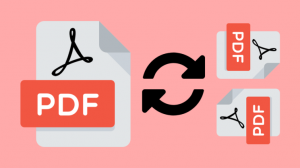Hidden Value in Software Investments
In modern business, software investments have emerged as crucial tools for enhancing efficiency, streamlining operations, and achieving strategic goals. However, the value derived from these NetSuite costs often goes beyond the noticeable features and functionalities. This concept of hidden value refers to the additional benefits and advantages that a software solution can offer beyond what is immediately apparent.
Importance of Evaluating ROI Beyond Initial Subscription Cost
When organizations consider adopting a new software solution, the temptation is to focus primarily on the initial subscription cost. While this is undoubtedly a significant financial consideration, it’s essential to recognize that software’s actual return on investment (ROI) extends far beyond this upfront expense. It encompasses increased productivity, improved decision-making, reduced manual effort, and the potential to tap into new revenue streams.
NetSuite’s Unseen Value Proposition
In enterprise resource planning (ERP) and business management software, NetSuite ERP is a prime example of a solution that offers more than meets the eye. While it may be known for its comprehensive suite of tools for financial management, customer relationship management (CRM), and e-commerce, NetSuite’s hidden value lies in its intricate functionalities that empower businesses in multiple ways.
NetSuite ERP provides a centralized platform integrating various business processes, promoting seamless communication and collaboration across departments. This integration enhances operational efficiency and enables a more holistic view of the entire business landscape. Decision-makers can access real-time data and insights, enabling more informed and agile choices.
Another aspect of hidden value in NetSuite ERP is its potential to automate labour-intensive tasks. Organizations can redirect human resources toward more strategic and innovative endeavours by automating repetitive processes. This, in turn, boosts productivity and fosters innovation.
Overview of NetSuite’s Extended Capabilities
NetSuite, developed by Oracle, is an all-in-one cloud-based ERP and business management solution designed to address the complex needs of modern enterprises. Beyond its surface-level features, NetSuite ERP offers a wide array of capabilities that span various business functions, making it a holistic solution for streamlining operations, enhancing decision-making, and driving growth.
Integration of Business Processes
NetSuite’s true power lies in its ability to integrate many business processes within a single platform seamlessly. This integration encompasses financial management, supply chain management, human resources, customer relationship management (CRM), e-commerce, and more. Rather than functioning as isolated silos, these modules work harmoniously, sharing real-time data and insights.
For instance, integrating finance and CRM is critical to NetSuite’s functionality. Sales data generated in the NetSuite CRM module can be directly linked to financial transactions, enabling accurate revenue tracking and forecasting. This tight connection fosters a deeper understanding of the relationship between sales activities and economic outcomes.
Improved Efficiency and Productivity through Integration
Integrating various business processes within NetSuite translates into improved organisational efficiency and productivity. Here’s how:
Streamlined Workflows:
With NetSuite, data only needs to be entered once and is then accessible across relevant modules. This eliminates duplication of efforts and minimizes the chances of errors that can arise from manual data entry.
Real-Time Insights:
Traditional systems often suffer from data latency issues, leading to outdated information and hindering decision-making. NetSuite’s real-time data synchronization allows stakeholders to access up-to-the-minute information, enabling them to make informed choices promptly.
Automated Processes:
NetSuite’s integration enables the automation of routine and repetitive tasks. This automation reduces the burden on employees, frees up their time for more strategic tasks, and reduces the likelihood of errors.
360-Degree View of Customers:
The integration of NetSuite CRM with other business functions means customer data is available across departments. This holistic view of customer interactions and behaviours enables personalized engagement, better customer service, and targeted marketing efforts.
Efficient Resource Allocation:
With integrated financial and supply chain management, businesses can optimize inventory levels, reduce stockouts, and minimize excess inventory. This results in improved cash flow and resource allocation.
Enhanced Reporting and Analytics:
Integrated data facilitates in-depth reporting and analytics. This allows organizations to gain insights into trends, performance metrics, and key indicators, aiding strategic decision-making.
By providing these integrated capabilities, NetSuite ERP enables businesses to achieve higher operational efficiency and productivity. The streamlined workflows, real-time insights, and automation fostered by the software’s integration can lead to cost savings, better resource allocation, and a competitive edge in the market.
Streamlined Workflows and Process Automation
Time Savings and Reduction of Manual Tasks through Automation
One of NetSuite’s key strengths lies in its robust automation capabilities, which can significantly save time and reduce the need for manual intervention in various business processes. Organizations can optimize their operations and allocate their human resources to more strategic and value-added activities by automating repetitive and routine tasks.
Examples of Streamlined Workflows across Different Departments
Finance Department:
In the finance department, NetSuite’s automation can streamline the accounts payable process. Purchase orders, invoices, and payment approvals can be integrated, ensuring that invoices are automatically matched with purchase orders and validated against contracts before payment. This reduces the need for manual invoice reconciliation and approval, leading to quicker payments and fewer errors.
Sales Department:
NetSuite’s sales and CRM functionalities integration can automate lead-to-order processes. When a lead converts to a customer, their information seamlessly transfers to the sales and finance modules, automatically generating quotes, sales orders, and invoices. This accelerates the sales cycle and enhances the customer experience.
Inventory Management:
Inventory, management, and sales integration can automate reorder processes. When inventory levels reach a predefined threshold, NetSuite can trigger automatic purchase orders to suppliers, ensuring that stock levels are maintained without manual intervention.
Human Resources:
NetSuite’s automation can assist with onboarding processes in the HR department. When a new employee is hired, their information can be automatically entered into the HR system, triggering the creation of employee profiles, benefits enrollment, and access to relevant procedures.
Increased Operational Efficiency and Reduced Costs through Automation
The benefits of automation within NetSuite extend beyond time savings, leading to increased operational efficiency and reduced costs for organizations.
Consistency and Accuracy:
Automated processes in NetSuite reduce the chances of human errors that often occur during manual data entry. This leads to more accurate data across systems, essential for financial reporting, compliance, and decision-making.
Faster Turnaround:
Automated workflows eliminate bottlenecks caused by manual handoffs and approvals. This results in faster turnaround times for order processing, invoicing, and licenses.
Resource Optimization:
By automating routine tasks, organizations can allocate their human resources to more strategic activities that require critical thinking, problem-solving, and creativity. This can enhance innovation and overall employee satisfaction.
Cost Reduction:
Automation reduces the need for labour-intensive manual processes, lowering labour costs. Additionally, it minimizes the risk of costly errors that can result in financial discrepancies, chargebacks, or penalties.
Scalability:
Manual processes become less scalable as businesses grow. NetSuite’s automation can adapt to increased transaction volumes without proportionally increasing the need for manual effort.
Summing Up:
NetSuite ERP’s hidden value emerges as a powerful force in modern business management, offering much more than meets the eye. As organizations consider software investments, it’s vital to recognize that NetSuite’s true ROI extends beyond its initial subscription cost. The comprehensive nature of NetSuite’s solution encompasses integrated business processes, streamlined workflows, and process automation, all of which contribute to its remarkable value proposition.
NetSuite’s pricing may initially seem like an investment, but it’s essential to factor in the extensive capabilities it brings. NetSuite ERP integrates these functions seamlessly, from financial and customer relationship management to inventory control and e-commerce, enabling organizations to achieve heightened operational efficiency, data accuracy, and cross-departmental collaboration.
Furthermore, NetSuite’s automation capabilities catalyze time savings and reduce manual tasks. This translates to increased productivity, decreased likelihood of errors, and the ability to allocate human resources to strategic endeavours that drive innovation and growth. As a result, NetSuite’s hidden value resonates in its capacity to transform businesses into agile, data-driven entities, well-equipped to navigate the complexities of today’s rapidly evolving business landscape.
While NetSuite’s pricing may represent an investment, its holistic solution, and the benefits it brings, from streamlined workflows to process automation, lead to improved efficiency and cost reduction. By acknowledging NetSuite’s holistic value and its potential to revolutionize business operations, organizations can make informed decisions that justify the pricing and pave the way for sustained success in an increasingly competitive market.





